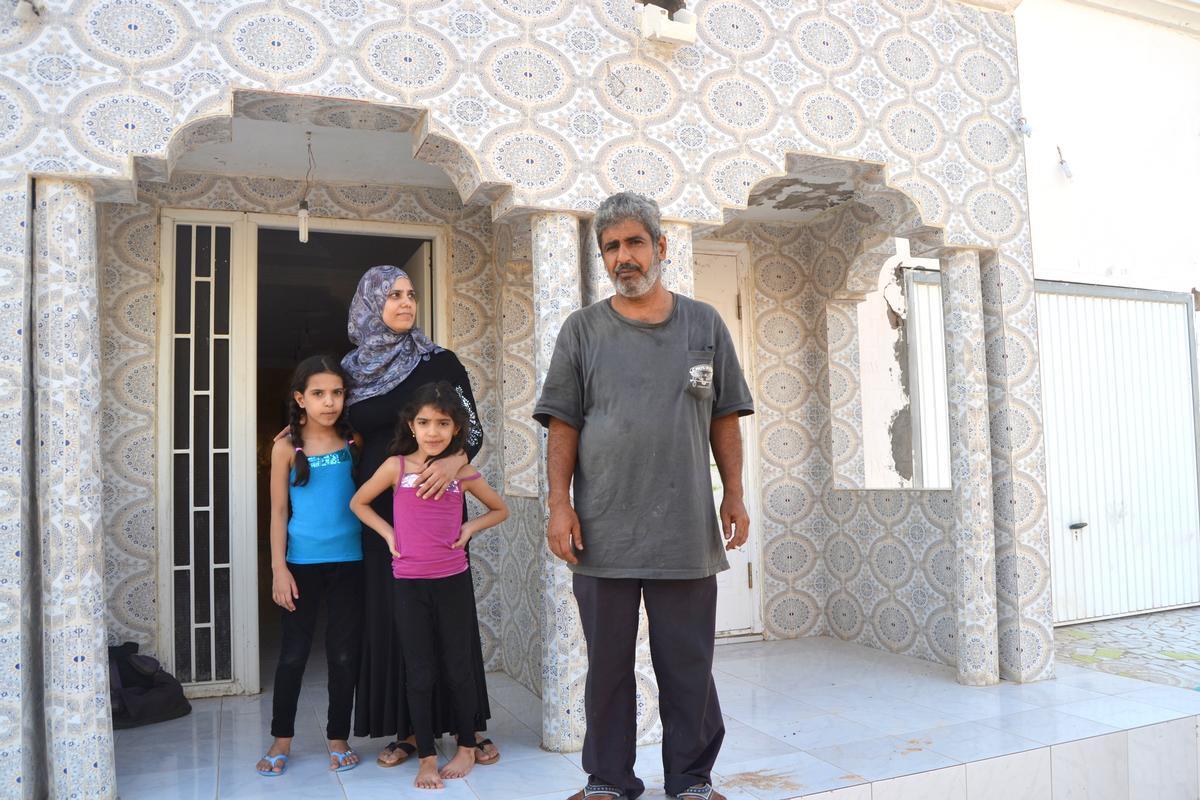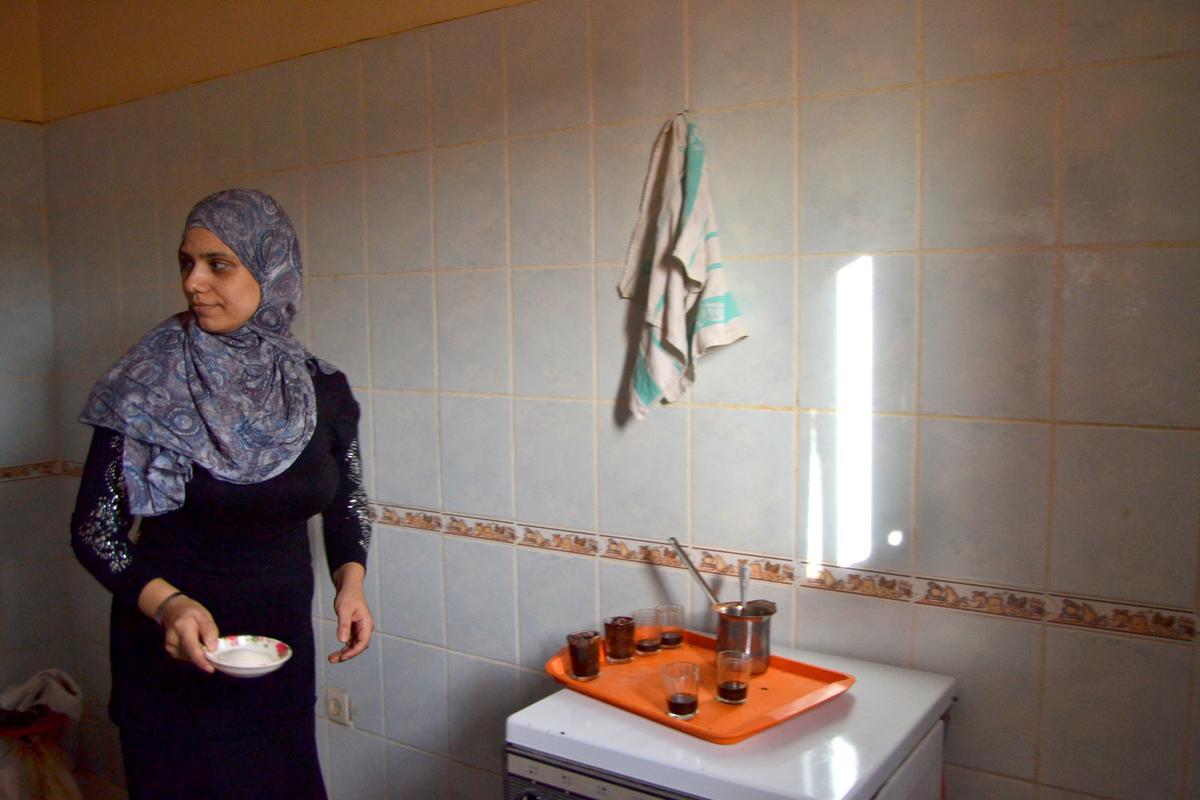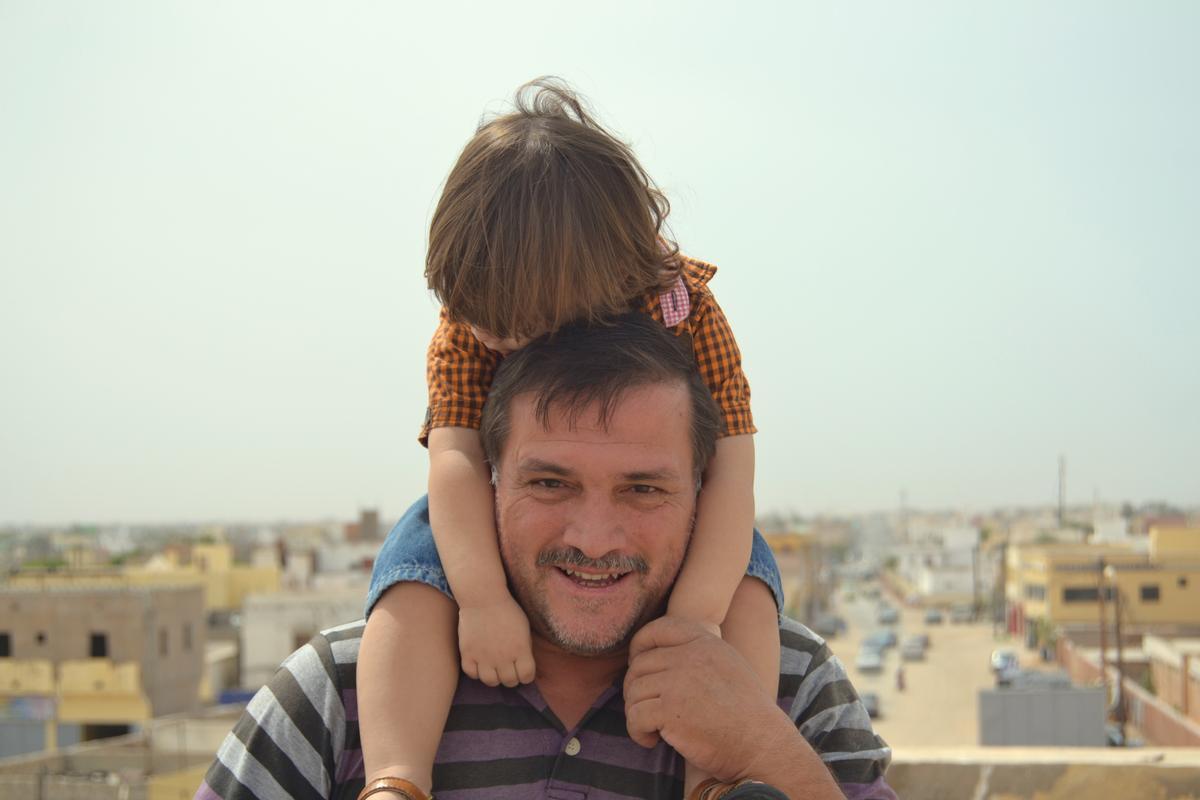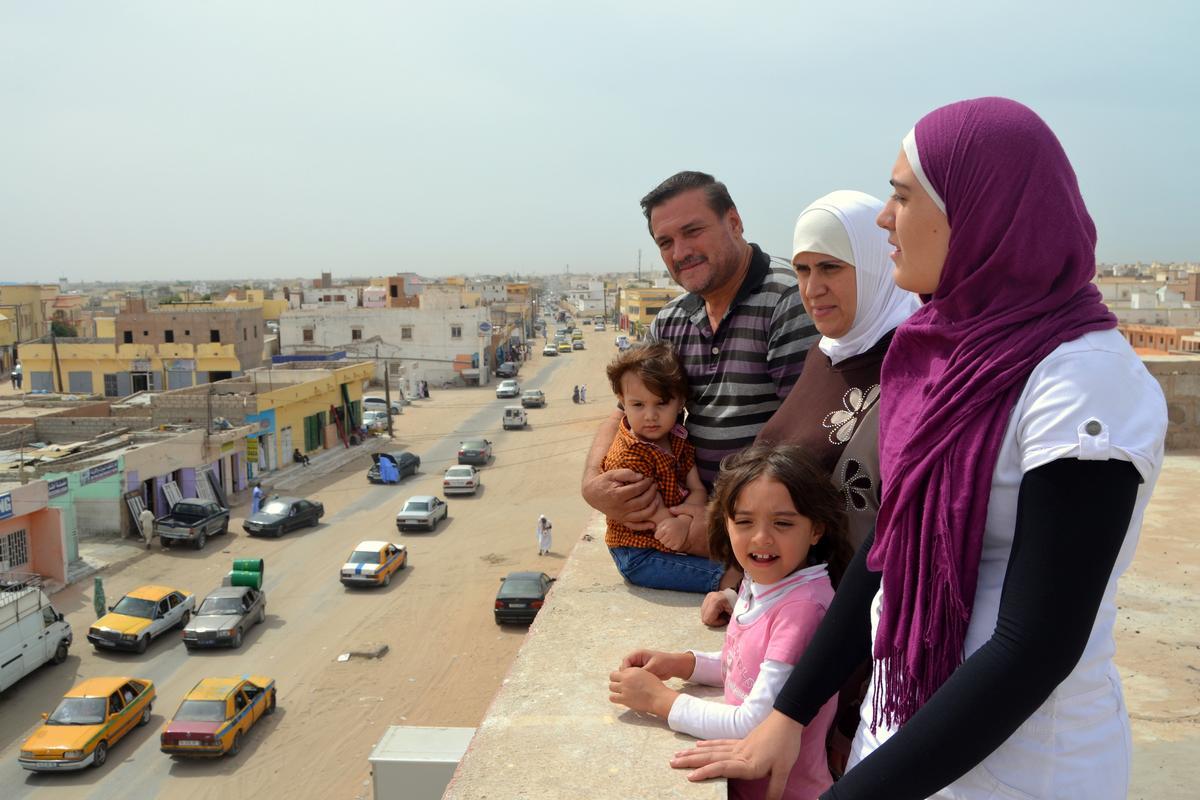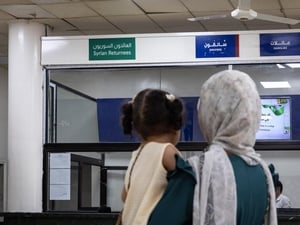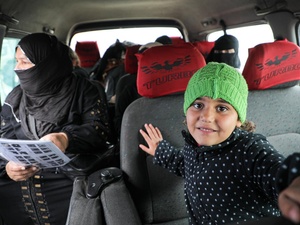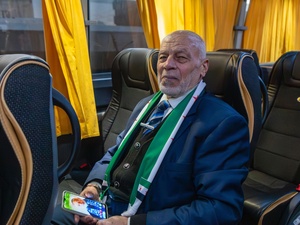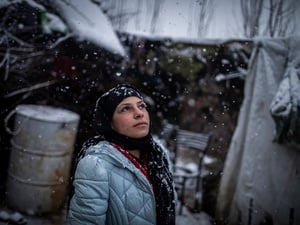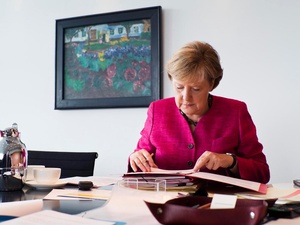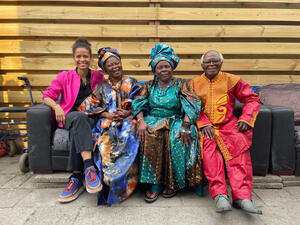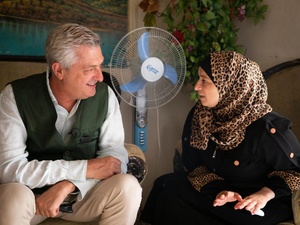For struggling Syrians in Mauritania, Finland offers fresh hope

For struggling Syrians in Mauritania, Finland offers fresh hope
An empty shack was the only thing that Mohamed* left behind, after deciding to sell all he had to purchase the plane tickets that led him and his family to the quiet Mauritanian capital of Nouakchott.
“We just want to find peace,” says Mohamed, his face beaded with sweat in the midday Saharan heat. “Alhamdulillah – thank God we are leaving again to start a new life!”
Mohamed’s family is among several Syrian families now being resettled from Mauritania to Finland. Like Mohamed, hundreds of Syrians who fled the conflict at home came a long way to seek refuge in Mauritania, before the government imposed visa restrictions on them in early 2016. However, many now struggle to make a living here due to lack of employment opportunities, and health care and education gaps.
Also among them is Talal. Before the war, he was an architect in Syria. In Mauritania, he has been working as a casual worker at a restaurant. “The house I built for my family in Homs does not exist anymore,” he says, his voice trailing off and his gaze becoming distant. For Talal's family, who share one of the small buildings in Nouakchott’s outskirts with another Syrian family just so they can pay the rent, resettlement to Finland comes as a great relief.
“We just want to find peace."
UNHCR, the UN Refugee Agency, has expressed growing concern for Syrians in Mauritania.
“Desperate Syrians are at high risk of attempting perilous journeys in the hope to reach Europe and can easily become victims of people smugglers here in the Sahel,” says UNHCR’s Mohamed Alwash. “In Mauritania last year, we received reports of a few Syrian families crossing into neighbouring unstable northern Mali with the intention to reach Europe through the most dangerous Saharan routes. For this reason, UNHCR has set up an outreach programme to inform the Syrian community on their rights as refugees and provide them with basic assistance.”
With no possibility to return to Syria, resettlement to third countries is sometimes the only durable solution. The brutal war in Syria is now approaching a tragic sixth anniversary. Alongside the hundreds of thousands killed or maimed in the fighting, 4.9 million people have sought refuge in neighbouring countries and a further 6.3 million have been displaced within Syria’s borders.
Former businessman and father-of-four Abu Bashir used to travel between Morocco and Syria, selling mattresses for a factory back home. But after his house in Aleppo was destroyed by an air strike in 2013, he had no option but to flee to Nouakchott with his family. “All my kids suffer from a genetic condition that cannot be treated here,” he says, holding up a picture of his elder son who has a brain malformation and learning difficulties.
Despite his business experience and contacts, Abu Bashir now works as a shoe retailer and struggles to make ends meet for his family. “We get both medical and school assistance for the kids from UNHCR, but the problem is that they need a special assistance that we cannot find in this country. Me, I am already 50 years old, I have no hope. But my future is my children and my family. I just wish they can live a normal life."
"The house I built for my family in Homs does not exist anymore."
Abu Bashir is hopeful that his family will be resettled as well. Meanwhile, he will never forget the lifeline that Mauritania offered to them at their darkest hour.
Syrian father of four and lab specialist Nadim, his wife and children lived in Aleppo until war forced them to flee in 2012. He knew some colleagues were already safe in Mauritania so, in October 2013, Nadim made the difficult decision to leave his family behind and board a plane to Nouakchott.
“I found it very hard here initially,” recalls Nadim. “I had left my family behind as I was looking for a safe place for them, but here I found no job and I was so far away from home. Communications were interrupted because of the conflict so I was living with the fear that something might happen to my wife and children. I used to cry all the time.”
"My future is my children and my family. I just wish they can live a normal life."
Finally, in 2014, Nadim was reunited with his family, and even managed to find a job at a Mauritanian health center. Then his wife was diagnosed with a breast tumour. “Inshallah – God willing – she will be operated on in Finland.”
At last, with the promise of a safe and stable family life, Nadim can look forward to the future once more. “I was once told by a Mauritanian singer that when you arrive in Mauritania you cry, but when you leave it you cry twice,” he says. “I cannot describe my feelings now that I am finally leaving the country that welcomed us in such a harsh moment.”
“I know it’s really cold in Finland, but we will not feel it in an environment where our rights are fulfilled."
* Some names have been changed for protection reasons


